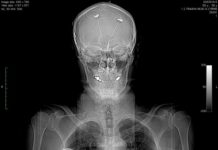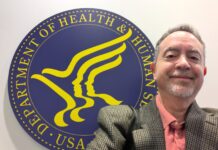How to be a Critical Psychologist Without Losing Your Soul: A Conversation With Zenobia...
On the Mad in America podcast, Zenobia Morrill, José Giovanni Luiggi-Hernández and Justin Karter join us to explore the need to raise awareness of psychological approaches that challenge mainstream perspectives.
MindFreedom’s Shield Program: Working to Free People from Psychiatric Incarceration and Forced Treatment
“We need the MindFreedom Shield to have someone in our corner when we are told that it doesn't matter what we want, that someone else can make a choice about our bodies that we will have to live with for the rest of our lives.”
Art, Music, Exercise, and More: What Are the Recommended Doses for Improving Mental Health?
Researchers have calculated the dose-response benefits of ordinary hobbies, habits, and lifestyle practices that are available without any trip to a doctor or a drug store.
Exploding Myths About Schizophrenia: An Interview with Courtenay Harding
The Vermont Longitudinal Study, led by Courtenay Harding, belied conventional beliefs about schizophrenia by showing remarkably good outcomes for patients discharged in the 1950s and '60s.
Michael Hengartner – Evidence-biased Antidepressant Prescription
We talk with Dr. Michael Hengartner about his new book which addresses the overprescribing of antidepressant drugs and critically examines the scientific evidence on their efficacy and safety.
Adverse Effects: The Perils of Deep Brain Stimulation for Depression
Hundreds of people have been given remote control deep brain stimulation implants for psychiatric disorders such as depression, OCD and Tourette’s. Yet DBS specialists still have no clue about its mechanisms of action and research suggests its hefty health and safety risks far outweigh benefits.
First-Person Accounts of Madness and Global Mental Health: An Interview with Dr. Gail Hornstein
Dr. Gail Hornstein, author of Agnes’s Jacket: A Psychologist’s Search for the Meanings of Madness, discusses the importance of personal narratives and service-user activism in the context of the global mental health movement.
“Progress Only Occurs when People Make Demands”: Paolo del Vecchio Reflects on a Life...
Paolo del Vecchio speaks with Leah Harris about his decades of public service at SAMHSA, what worries him most about mental health in today’s America, and where he sees hope in the recovery movement that he helped create.
Reporting the COVID Crisis at Psychiatric Hospitals: A Missed Opportunity
In its coverage of the impact of COVID on psychiatric hospitals, the media missed opportunities to challenge stereotypes and interrogate problems with current carceral approaches to mental health treatment.
Psychosocial Disability Rights and Digital Mental Health: An Interview with Piers Gooding
MIA's Emaline Friedman interviews legal scholar Piers Gooding on his work on disability rights and digital mental health technologies.
Is Mad in America Doing More Harm Than Good?
A dialogue between Dr. Jim Phelps—a psychiatrist who questions whether MIA is doing more harm than good by reporting the results of long-term trials of psychiatric drugs—and Robert Whitaker, founder of MIA.
Fireside Project: Peer Support for Psychedelic Experiences
A new nonprofit support line takes a harm-reduction approach and helps people process their psychedelic experiences.
Busting the Deinstitutionalization Myth: We Actually Have More Beds Than Ever Before
New data upends common beliefs about asylum closures, deinstitutionalization, and rates of psychiatric coercion.
Jill Nickens – The Akathisia Alliance for Education and Research
This week on the Mad in America podcast we turn our attention to prescription-drug-induced akathisia and joining me to discuss this is Jill Nickens. Jill is the president and founder of the Akathisia Alliance for Education and Research, a nonprofit organization formed by people who have personal experience of akathisia.
After MIA Calls for Retraction of STAR*D Article, Study Authors Double Down on the...
In their letter to the editor, Rush et al. have doubled-down on the fraud they committed in their 2006 summary report of STAR*D outcomes.
“Getting to the Root Causes of Suffering”: An Interview with Patricia Rush, M.D.
Dr. Rush talks about the THEN Center and the links between childhood trauma, inequality, human development, and chronic illness.
Is Dialogue the Best Medicine? A Conversation With Jaakko Seikkula
Jaakko Seikkula joins us on the MIA podcast to discuss how Open Dialogue came to be, the research that shows its positive outcomes, how psychiatry has failed to learn from Open Dialogue practice and more.
Branding Diseases—How Drug Companies Market Psychiatric Conditions: An Interview with Ray Moynihan
MIA’s Ayurdhi Dhar interviews Ray Moynihan about the marketing of disorders, broadening of diagnoses, and harmful treatments.
The Proactive Search for Mental Illnesses in Children
Part one of a two-part Mad In America investigation into the expansion of psychological screening and electronic surveillance of children and youth. A new government-funded mental health training program for British Columbia family physicians and school staff promotes screening for mental disorders in all children and youth. Critics say the program omits key scientific evidence, seems more like drug promotion than medical education, and downplays serious potential harms. Nevertheless, programs like it are rolling out across Canada and the US.
Kamala Harris’s ‘Mental Health’ Plan: Why It Still Matters
Harris’s plan was met with vociferous condemnation from psychiatric survivors, civil libertarians, and disability justice advocates, who vowed to fight it. While Harris has dropped out of the presidential race, the ideas behind her policy proposal have existed for decades, and are likely to endure.
Uncovering Radical Psychiatry and Institutional Psychotherapy in Postwar France: An Interview with Camille Robcis
MIA's Micah Ingle interviews historian Camile Robcis about radical and liberatory forms of psychiatry and psychotherapy in postwar France.
Climate Change, Mental Health and Collective Action: An Interview with Jennifer Freeman
In an interview with MIA's Akansha Vaswani, narrative therapist Jennifer Freeman calls for a shift away from individualistic approaches to 'eco-anxiety' and toward responses that connect us all to a counter-tsunami of action for the planet.
Opening Doors in the Borderlands: An Interview with Liberation Psychologist Mary Watkins
MIA’s Micah Ingle interviews Mary Watkins about reorienting psychology toward liberation and social justice.
Family Panel Discussion – Supporting a Child, Teen, or Young Person in Crisis
Supporting a Child, Teen, or Young Person in Crisis - Our guest panel, Ciara Fanlo, Morna Murray and Sami Timimi join host Amy Biancolli to share stories of crisis but also stories of healing and of hope.
Inside A Forensic Psychiatry Unit: Rolled Ankles, RATs, and Invisible Abuse—The Final Obstacles Toward...
Sexual abuse is inevitable, an unspoken and largely invisible tragedy that affects most, if not all, inmates who enter into any detention center, especially a so-called “mental hospital.”

































